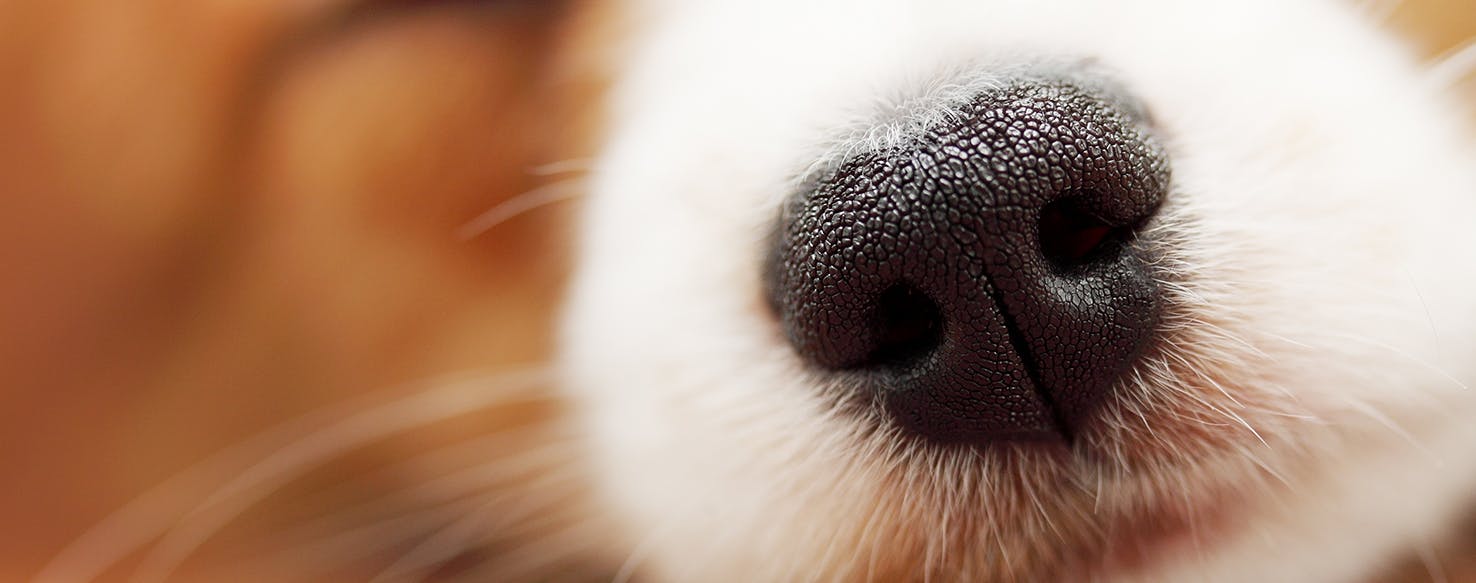Difficulty breathing and heavy breathing; In dogs, stuffy noses can result from things like allergies, bacterial or fungal infections, viruses, tooth abscesses, parasites, and nasal polyps.

Veterinary Practice Dog Stuffy Nose At Night
Oxygen therapy and other bronchial therapy or hospitalization may be necessary.

Dog has stuffy nose. The roots of the teeth are close to the nasal passage, and because of that, a runny nose will begin to occur. There are a few ways you can treat your dogs sinus infection at home. If we are miserable from stuffy noses, imagine how they must feel when they do.
Blood clots can cause a severe runny nose that might also look a little pinkish. These are serious conditions that require the expertise of a vet to treat. Why do dogs get stuffy noses?
One possible cause would be an allergy, which can cause the stuffy nose, discharge, and sneezing. Sighting dog congestion signs and symptoms can help precisely decipher the underlying cause of a stuffy nose. Take walks midday to avoid high pollen counts in the mornings and evenings.
This will help clear out all the blockages and make it easier for them to breathe. My dog has a stuffy nose, congestion and trouble breathing. Dogs explore the world through their noses.
A nose discharge of mucus or pus could indicate your dog has a bacterial, fungal, or viral infection. If congestion is at a point where your dog is wheezing, you will want to speak to your veterinarian and schedule a visit. Dog has stuffy nose and wheezing.
Allergic rhinitis is similar to thehay fever people get and can be caused pollens (ragweed, goldenrod) or molds, dust mites or other indoor allergens. As a result, the airflow through the nose is reduced, and it’s more difficult for your dog to breathe than usual. Unique suggestions on what to do to help the dog from having a runny or stuffy nose.
Nasal discharge and nose swelling; Why does my dog sound like he has a stuffy nose? In the meantime, there are ways to clear a dog's nose and offer immediate relief prior to a veterinary visit.
Thus, pet owners must recognize the signs of nasal congestion and learn how to help their dogs. A common cause of a stuffy nose in dogs is allergies. The most common cause is that your dog is sleeping in an odd position, resulting in congestion.
When you take your dog to the vet, he will undergo a physical examination to diagnose the cause of the stuffy nose. Yes, he is breathing fine. Dogs that have teeth issues can experience a runny nose, and even sneezing.
If your dog has stuffy nose and wheezing, it would be wise to see a veterinarian as soon as possible. Whenever your dog has a stuffy nose, the blood vessels in the nose swell. When you take your dog to the vet, he will undergo a physical examination to diagnose the cause of the stuffy nose.
My poor dog won't stop coughing. Wheezing is often indicative of lower respiratory infections like pneumonia in dogs. If your dog is allergic to grass.
Although a blocked nose feels like a human ailment, your dog can also contract a stuffy nose, and suffer all the same drawbacks that come with it. The congested sounds that your dog might produce are not unusual and can occur for several reasons. Usually, vets prescribe decongestants that shrink the blood vessels and allow air to flow unobstructed through the nose.
Humans may think that dogs don't catch colds or can't get hay fever, but it is absolutely possible for your dog to get a stuffy nose. Some bacterial infections will occur after the initial viral infection. Distemper is a viral infection that can be fatal if not treated right away, and aspergillosis is a fatal fungal infection.
The following are common symptoms of congestion in dogs: Viral, bacterial, and fungal infections can cause your dog to have a stuffy nose. This could mean that that your dog has more than one ailment happening at the same time.
The larvae make their way through the mouth or nose of your dog. Usually when the weather turns he gets a little cough…he's 11 and it. Head colds (a viral infection) an environmental or seasonal allergy;
One way is to use a neti pot and saline solution, which will help clear out the mucus in your dogs nose. Less common, but possible, is a stuffy nose as a result of tumors and cancerous glands in the nasal passage. However, after contacting a veterinarian, he/she might recommend getting over the counter nasal rinse for your dog which might help clear up his/her nasal passageway.
They could also be suffering from a bacterial or fungal infection in the nose. Humans may think that dogs don't catch colds or can't get hay fever, but it is absolutely possible for your dog to get a stuffy nose. Like people, dogs can struggle with congestion as a result of excess mucus production.
Do not put anything up your dog’s nose. Other reasons your dog may sound congested are allergies, a cold, obesity, medication, or nasal. Sometimes, a stuffy or runny nose is nothing to worry about and the irritant will pass on its own, but too much dog mucus can be a sign that intervention is needed, like in the case of kennel cough or distemper.
Although a blocked nose feels like a human ailment, your dog can also contract a stuffy nose, and suffer all the same drawbacks that come with it. Dogs suffer from stuffy noses for a variety of reasons, including several which can cause similar symptoms in humans. Some of the most common causes of nasal congestion in dogs include:
Why does my dog’s nose sound stuffy? 🐶 can a dog get a stuffy nose? Dogs can get a blocked nose due to allergies.
If your pup’s runny nose is caused by seasonal allergies, try making a few lifestyle changes to reduce exposure to allergens. It's been a little over 48 hours. This article will talk about the symptoms of stuffy nose in dogs, their causes, and how you can treat them at home.
They can be allergic to dust, mites, mold, even grass! Provide your dog with plenty of water to avoid dehydrating due to the fever, runny nose, etc. 🐶 can a dog get a stuffy nose?
Allergies may cause nasal congestion which leads to a stuffy nose. In general, if your dog has a mild runny nose with clear nasal discharge, you can treat symptoms at home.